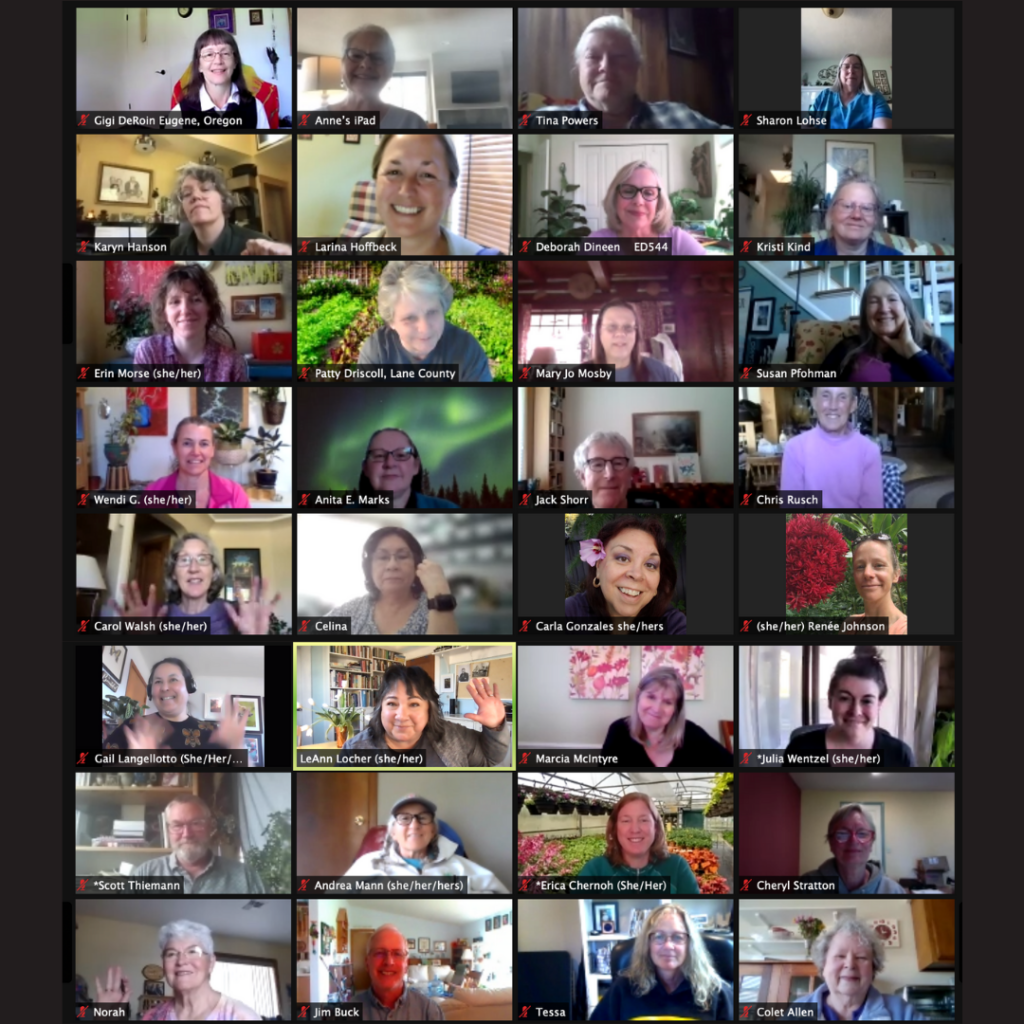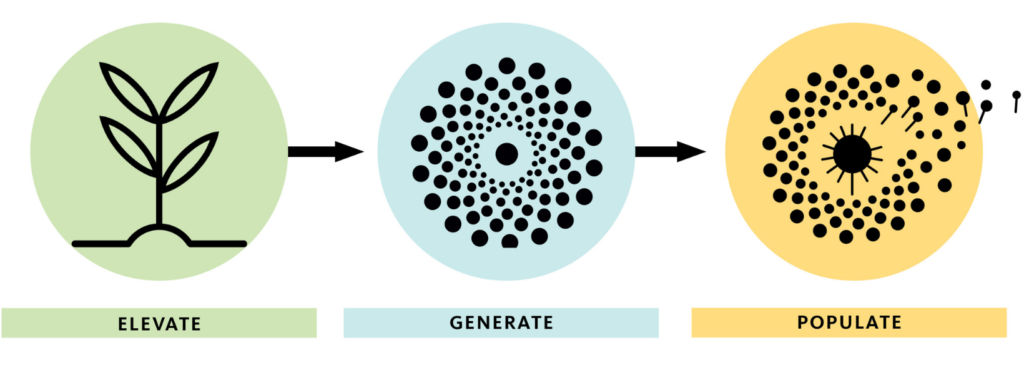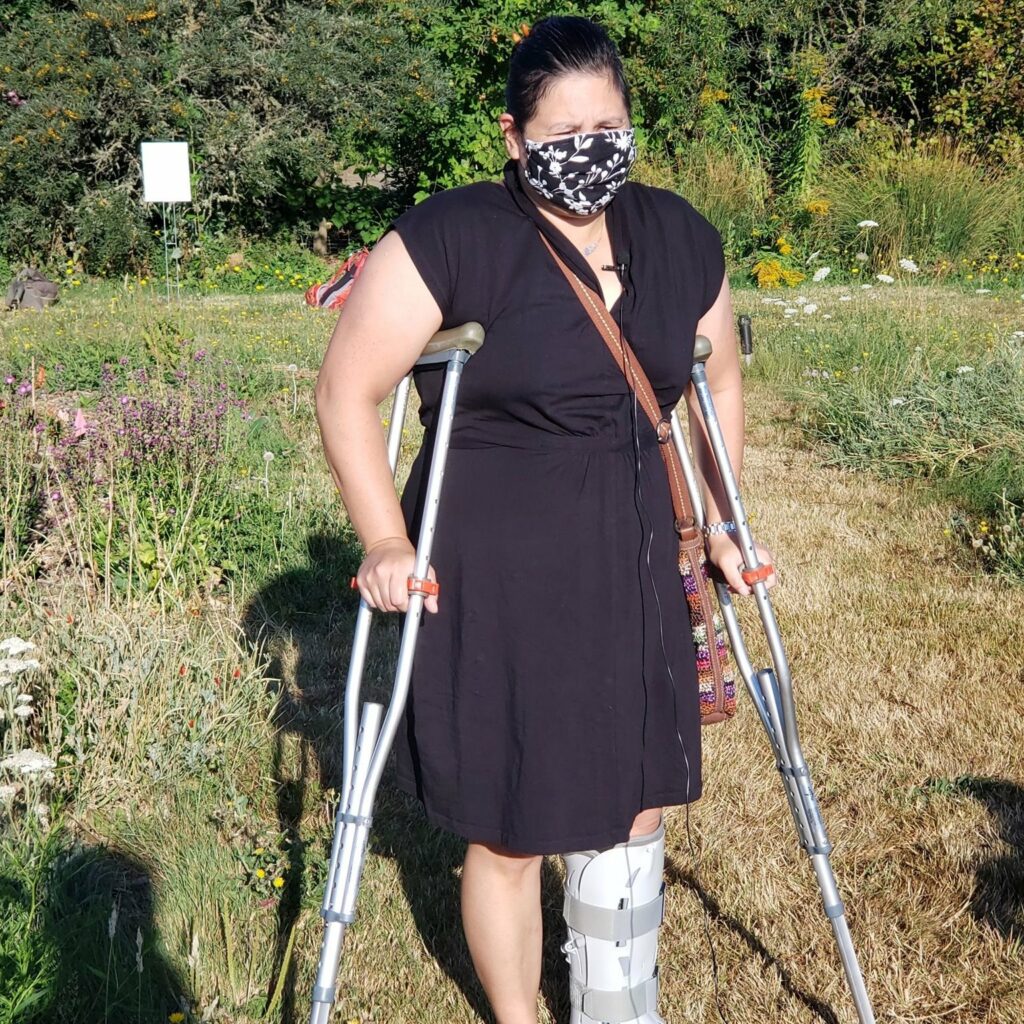Each quarter, Gail Langellotto (me, the statewide OSU Extension Master Gardener Program Leader) provides a report to the Oregon Master Gardener Association Board of Directors. This blog post is a copy of that report.
Please note that the information referenced on the hyperlinks attached to this report can change rapidly, particularly for COVID guidance from OSU. I am sharing what I know, as of this moment in time. The guidance may very well change, in the near future.
Updates from OSU Extension
- Dr. Ivory Lyles will start his tenure as Vice Provost of Outreach and Engagement, and Director of the OSU Extension Service, on September 30th.
- OSU’s vaccination requirement does not apply to volunteers, but to faculty, staff, and students.
- The COVID-19 Safety Training for OSU Extension offices is being updated. It had been required for volunteers, participating in face-to-face programs and projects. I don’t yet know how it will be rolled out or required, in the future. But, as staying safe in the workplace is a high priority, I would hope that this training will be put to good use within the Master Gardener Program, and across all Extension programs.
- OSU has updated their guidance for in person events.
- OSU-managed, indoor, face-to-face programs and activities can proceed, where registration (day of or pre-registration) occurs.
- OSU-managed, outdoor, face-to-face programs and activities can proceed, where registration (day of or pre-registration) occurs.
- Where MGs might be participating in events not managed by OSU:
- employees and volunteers are expected to follow OSU policy and OHA public health recommendations (regarding face coverings, for example), but we can’t impose our guidelines on events and activities that are managed by community partners.
- we can opt not to participate in community partner events, in the interest of public health and safety.
2022 Master Gardener Awards
- Nominations for county and statewide Master Gardener awards are due on May 15th, every year.
- The 2022 nominations forms will be posted online. This will make it easier to track nominations, as they are submitted. The current system of sending them through email makes it difficult to manage, given the amount of email volume that Gail receives.
- Please make sure that your county Master Gardener groups knows that they should start discussing potential nominees WELL IN ADVANCE of the May 15th deadline. I would suggest putting it on the agenda in January or February of each year, making final decisions in March of each year, and then using April to write up nominations.
- Communicate with your Master Gardener coordinator throughout the process. Double check and cross check that everyone is on the same page, when it comes to the name(s) that will be submitted for awards.
2022 Master Gardener Training
- Counties are currently planning for recruitment of 2022 Master Gardener trainees, and delivery of the 2022 Master Gardener training classes.
- Many/most counties are planning for hybrid (online and in person) training options, that allow greater flexibility and opportunity for participation. The online options are also a safe option, given instructors’ and students’ (or potential students’) concerns about COVID. Your specific county program can share the details of their training series.
- New in 2022: the statewide Master Gardener program office is developing:
- a module that goes over the statewide policies and expectations, related to volunteerism with OSU and in the Master Gardener Program. This module is intended to serve as an orientation for new Master Gardener students, but will also serve as a good reminder/update for continuing Master Gardener volunteers. The module is required for all new Master Gardener trainees, and recommended / required (we haven’t settled on this, yet) every 2-3 years for continuing MG volunteers. This module will include information on:
- What does it mean to be a MG: Representative of the University; Recognition of advanced training and study; Expectations for superior customer service and support
- Required Paperwork: Code of Conduct, Conditions of Volunteer Service Form (every year), PD, OSU College of Ag Sciences CAREs document.
- Our commitments to protecting children.
- Criminal History Checks (every two years?): Why they are required. What happens during the Criminal History Check Process.
- Mandatory Reporting of Child Abuse: an abridged training from the Office of Youth Safety
- Volunteer Service Hour Requirements: What counts as volunteer hours? How to record volunteer service hours. Why the volunteer hour reporting is important.
- a module that goes over the statewide policies and expectations, related to volunteerism with OSU and in the Master Gardener Program. This module is intended to serve as an orientation for new Master Gardener students, but will also serve as a good reminder/update for continuing Master Gardener volunteers. The module is required for all new Master Gardener trainees, and recommended / required (we haven’t settled on this, yet) every 2-3 years for continuing MG volunteers. This module will include information on:
- A module that grows the community education component of the Master Gardener Program. Master Gardeners learn sustainable horticulture from Oregon State University and extend this information to local communities by serving as volunteers community educators. The Volunteer Community Educator Curriculum helps prepare new and continuing volunteers for this role. It will be required for new trainees, as well as for recertification of continuing Master Gardener volunteers. We anticipate offering a menu of options that individuals can participate in to satisfy this requirement, most of which are one hour or less, in length.
- Master Gardener volunteers who are active on the statewide or on local diversity, equity, and inclusivity committees can apply their work in these groups towards meeting the training or recertification requirement.
- OSU Extension’s DEI training for volunteers (4 modules, about 1 hour of total time, in length: Introduction, Equity, Inclusivity, and Conclusion)
- Recipes for Collaborative Communities course (from the Elevated Skills Training Series that was offered in 2021, through Thinkific)
- Broadening Outreach with Community Partnerships (from the Elevated Skills Training Series that was offered in 2021, through Thinkific)
- Abra Lee’s Culture of Gardening Keynote: ‘The Work is In Our Hands’
- Webinar from OID: to be scheduled by and delivered through the statewide office.
- OSU’s Martin Luther King Jr. Day of Celebration Keynote or associated events
- Events organized by the Master Gardener DEI Task Force Events committee
Dates to Remember
- Ongoing, Second Tuesday of Each Month: Level Up, Growing Oregon Gardeners Series. Remaining classes for 2021 include: native plants (September), climate change (October), and garden soils (November). The series will return in January of 2022.
- September 12-17, 2021. International Master Gardener Conference: September 12-17, 2021. Registration has closed, but perhaps I will see some of you there?
- September 25, 2021: Fall Master Gardener BioBlitz: One fall day to document garden biodiversity in Oregon. Join us with your camera on September 25, 2021 to capture the insects, birds, wild plants, and other wild organisms in your garden or a nearby community or public garden space.
- September 30th: Extension Master Gardener Photo Contest Winners will be announced on October 25th. See our blog for details.
- Save the Date!: November 10, 2021: The Extension MG DEI Task Force Events Subcommittee is hosting a screening of the film ‘Gather’, at 7pm on November 10th. A 30 minute panel discussion will follow, featuring Dr. David Lewis of OSU. More details will be forthcoming. Please share this Save the Date with Your Volunteers.
May 15, 2022: Master Gardener Awards nominations are due.
Announcements
- Culture of Gardening Blog. If you and your Master Gardeners have not yet seen the new ‘Culture of Gardening’ blog, please take a look. We have been receiving a lot of positive feedback from diverse communities, who are happy to broaden their understanding of diverse identities and cultures . . . and how these identities intersect with plants and gardening:
- Master Gardener Photography Contest: Please make sure to communicate with your Master Gardeners colleagues about the fun opportunity to participate in our first ever photography contest, currently open for submissions, through October 25th. Now is a great time to capture in photos the bounty of the summer harvest, the beauty of our demonstration gardens, and all of the hard work MGs are putting in in the community.
- Recruitment Materials: Priorities, Values, Mission, Vision One Pager (double-sided): You can learn more about the Master Gardener Program on our website, and can share this information with prospective Master Gardener volunteers who want to know more. We also have a one-pager (double sided) that can be used to talk about our program.
- We will be calling for applications for the 2nd Cohort of the Master Gardener DEI Task Force. The call for applications will go out in early 2022, with new members joining the cohort in April 2022.










